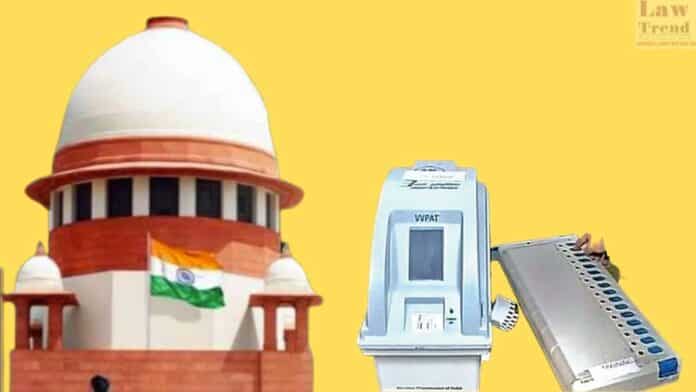In a significant development on Monday, the Supreme Court of India called upon the Election Commission (EC) to respond to a plea advocating for the comprehensive counting of Voter Verified Paper Audit Trail (VVPAT) slips in the electoral process. The current practice involves the verification of VVPAT slips from only five Electronic Voting Machines (EVMs) selected at random in each assembly segment of a parliamentary constituency.
The bench, comprising Justices BR Gavai and Sandeep Mehta, not only issued the notice but also aligned the petition with a similar appeal made by the non-governmental organization, Association for Democratic Reforms (ADR), which seeks akin remedies.
The plea, championed by lawyer and activist Arun Kumar Aggarwal and presented through Supreme Court Advocate-on-Record Neha Rathi, questions the Election Commission’s guidelines. These guidelines dictate a sequential approach to VVPAT verification, potentially leading to delays. Aggarwal proposes that through the deployment of additional officers and simultaneous verification processes, the complete examination of VVPAT slips could be achieved within a mere five to six hours.
Also Read
This move comes against the backdrop of the government’s hefty investment of nearly Rs 5,000 crore for the procurement of about 24 lakh VVPAT machines. Despite this, the plea highlights a stark contrast, pointing out that currently, only around 20,000 VVPAT slips undergo verification. The petitioner argues for a more transparent and inclusive verification process, allowing voters to directly contribute to the integrity of the electoral process by physically depositing their VVPAT slips into the ballot box.
Case Title: Arun Kumar Agrawal v. Election Commission of India and Anr., W.P.(C) 184/2024




